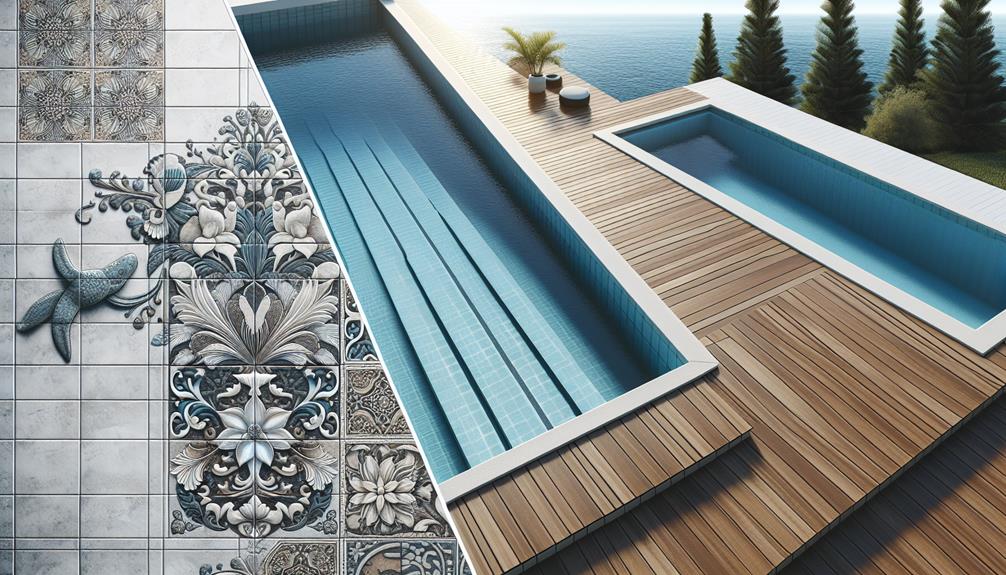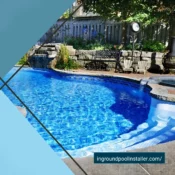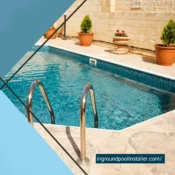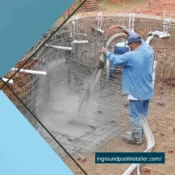Concrete Pools Vs. Other Types: a Deep Dive Into Durability, Customization, and Care

Concrete Pools Vs. Other Types: a Deep Dive Into Durability, Customization, and Care
In the world of private aquatic facilities, the choice between concrete pools and other types merits a comprehensive evaluation centered on durability, customization, and care. Concrete pools, crafted from robust materials such as gunite or shotcrete, offer unparalleled structural longevity and resistance to environmental strains, distinguishing them from fiberglass or vinyl alternatives. Furthermore, the adaptability of concrete permits bespoke designs, from intricate tiling to custom shapes, ensuring each pool can uniquely complement its surroundings. However, the requisite maintenance for concrete pools is considerably more demanding, involving detailed, periodic upkeep to maintain their structural and aesthetic qualities. Exploring these aspects further reveals critical insights into why homeowners might prefer one type over another, depending on their specific needs and circumstances. Engaging a professional inground pool installer can help navigate these choices and ensure the best possible outcome for your aquatic oasis.
Comparing Pool Durability
When comparing the durability of various pool types, concrete pools generally offer superior longevity and resistance to wear and tear compared to fiberglass and vinyl alternatives. The inherent robustness of concrete pools is largely due to their construction from high-quality materials such as gunite or shotcrete, which can effectively withstand environmental stressors and frequent usage without significant degradation.
Concrete's versatility not only contributes to structural solidity but also enhances its resilience against diverse climatic conditions. This is particularly important in areas subject to extreme temperatures, where the material's properties prevent cracking and damage that might compromise the pool's integrity.
Additionally, the denseness of concrete provides a formidable barrier against issues like leaks and infiltrations, which are more prevalent in pools made from less durable materials.
Moreover, the chemical resistance of concrete proves advantageous when considering pool maintenance involving sanitizers and pH balancing chemicals. Unlike fiberglass or vinyl, which can deteriorate or discolor upon prolonged chemical exposure, concrete maintains its composition and appearance, ensuring a longer lifespan without requiring frequent resurfacing or repairs.
This aspect is especially crucial for pool owners who seek a blend of durability and minimal maintenance, making concrete pools a preferred choice within the community.
Options for Customization and Care
Beyond durability, concrete pools also offer extensive options for customization and require specific care practices to maintain their pristine condition. Owners can tailor their pool's shape, depth, and aesthetic features to their unique preferences and site specifications. The adaptability of concrete allows for the creation of bespoke elements such as vanishing edges, built-in seating, or intricate mosaic tiles that reflect personal tastes and enhance the overall ambiance of the outdoor space. Such customization options enable homeowners to create a sanctuary that not only meets their functional needs but also resonates with their personal identity and lifestyle aspirations.
Caring for concrete pools involves systematic and detailed maintenance protocols to preserve their integrity and aesthetic appeal. Regular pH and alkalinity checks are imperative to prevent the corrosive effects of imbalanced water chemistry, which can damage the pool's surface. Additionally, periodic resurfacing is necessary to address any wear and tear and to keep the pool's appearance fresh and inviting.
Implementing a scheduled cleaning regimen, including brushing and vacuuming, will prevent algae buildup and ensure the pool remains a clean, safe, and welcoming space for all to enjoy.
In conclusion, the unparalleled robustness and limitless design possibilities of concrete pools distinctly surpass other pool types.
The enduring nature of materials such as gunite and shotcrete ensures a near-indestructible aquatic haven, capable of withstanding the relentless assault of time and elements.
However, such magnificence demands rigorous upkeep, from scrupulous cleaning to periodic resurfacing, to maintain its splendor.
Thus, concrete pools represent not merely a choice, but a resolute commitment to excellence and enduring quality. Partnering with an experienced inground pool installer is essential to achieving and maintaining this high standard of excellence.
All Categories
- Concrete
- Concrete
- Concrete pools
- Construction
- Custom Features and Add-ons
- Design
- Design
- Design
- Design & Construction
- Design and Planning
- Features & Customization
- Infinity edge
- inground pool
- inground pool builder
- inground pool installer
- Installation
- Installation Process
- Legal & Administrative
- Materials
- planning and design
- Pool Aesthetics and Customization
- Pool Design
- Pool Equipment
- Pool Features
- Pool Features
- Pool Installation Process
- Pool Materials
- Pool Materials
- Pool Types
- Project Planning
- Renovation
- Resurfacing
- top sights
- Types of Inground Pools
- Types of Inground Pools
- Types of Inground Pools
- Types of Inground Pools
- Water Treatment



